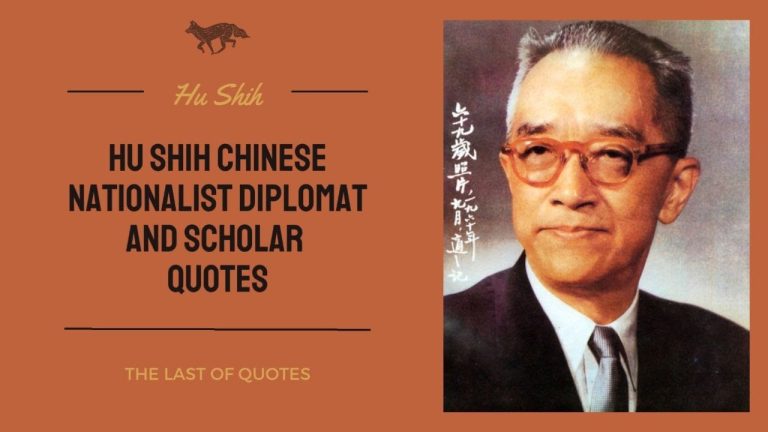Date of Birth: December 17, 1891
Zodiac Sign: Sagittarius
Date of Death: February 24, 1962
Biography
Hu Shih was a prominent Chinese philosopher, essayist, and diplomat, best known for his pivotal role in the New Culture Movement and his advocacy for Chinese liberalism and educational reform. Born into a scholarly family, Hu Shih’s early education was steeped in classical Chinese literature. However, his intellectual journey took a significant turn when he went to the United States to study at Cornell University and later at Columbia University under the tutelage of John Dewey, a leading figure in the American pragmatist movement. Upon returning to China, Hu Shih became a key figure in the May Fourth Movement, advocating for the use of vernacular Chinese in literature and pushing for a break from traditional Confucian values. His efforts were instrumental in modernizing Chinese education and thought, promoting scientific inquiry and democratic ideals. In addition to his philosophical work, Hu Shih had a distinguished career in diplomacy and academia. He served as the Republic of China’s ambassador to the United States during World War II and later became the president of Peking University. His extensive writings include essays, literary criticism, and philosophical treatises that have left a lasting impact on Chinese intellectual history.
5 Interesting Facts about Hu Shih
1. Hu Shih was nominated for the Nobel Prize in Literature in 1939.
2. He was a strong advocate of the use of the vernacular language (Baihua) in Chinese literature.
3. Hu Shih served as the Republic of China’s ambassador to the United States from 1938 to 1942.
4. He was instrumental in the founding of the Academia Sinica, Taiwan’s premier research institution.
5. Hu Shih was a close friend and student of the American philosopher John Dewey, whose pragmatism greatly influenced his own thinking.
5 Most Interesting Quotes from Hu Shih
1. “A thought which does not result in an action is nothing much, and an action which does not proceed from a thought is nothing at all.”
2. “Life itself cannot give you joy unless you really will it. Life just gives you time and space; it is up to you to fill it.”
3. “The greatest tragedy of a nation is its loss of faith in its own culture.”
4. “Every new generation is a new invasion of savages.”
5. “Science and democracy are the two scions of the same tree of knowledge.”
Highest Net Worth Achieved
Hu Shih’s net worth was not a significant aspect of his life, given his focus on academic and diplomatic careers rather than financial accumulation. As such, precise figures are not available.
Children
Hu Shih had one son, Hu Sidu, who tragically died at a young age.
Relevant Links
1. [Hu Shih on Wikipedia](https://en.wikipedia.org/wiki/Hu_Shih
2. [Biography at Stanford Encyclopedia of Philosophy](https://plato.stanford.edu/entries/hu-shih/
3. [Hu Shih’s role in the New Culture Movement](https://www.britannica.com/biography/Hu-Shih
5. [John Dewey and Hu Shih](https://www.jstor.org/stable/1397810


